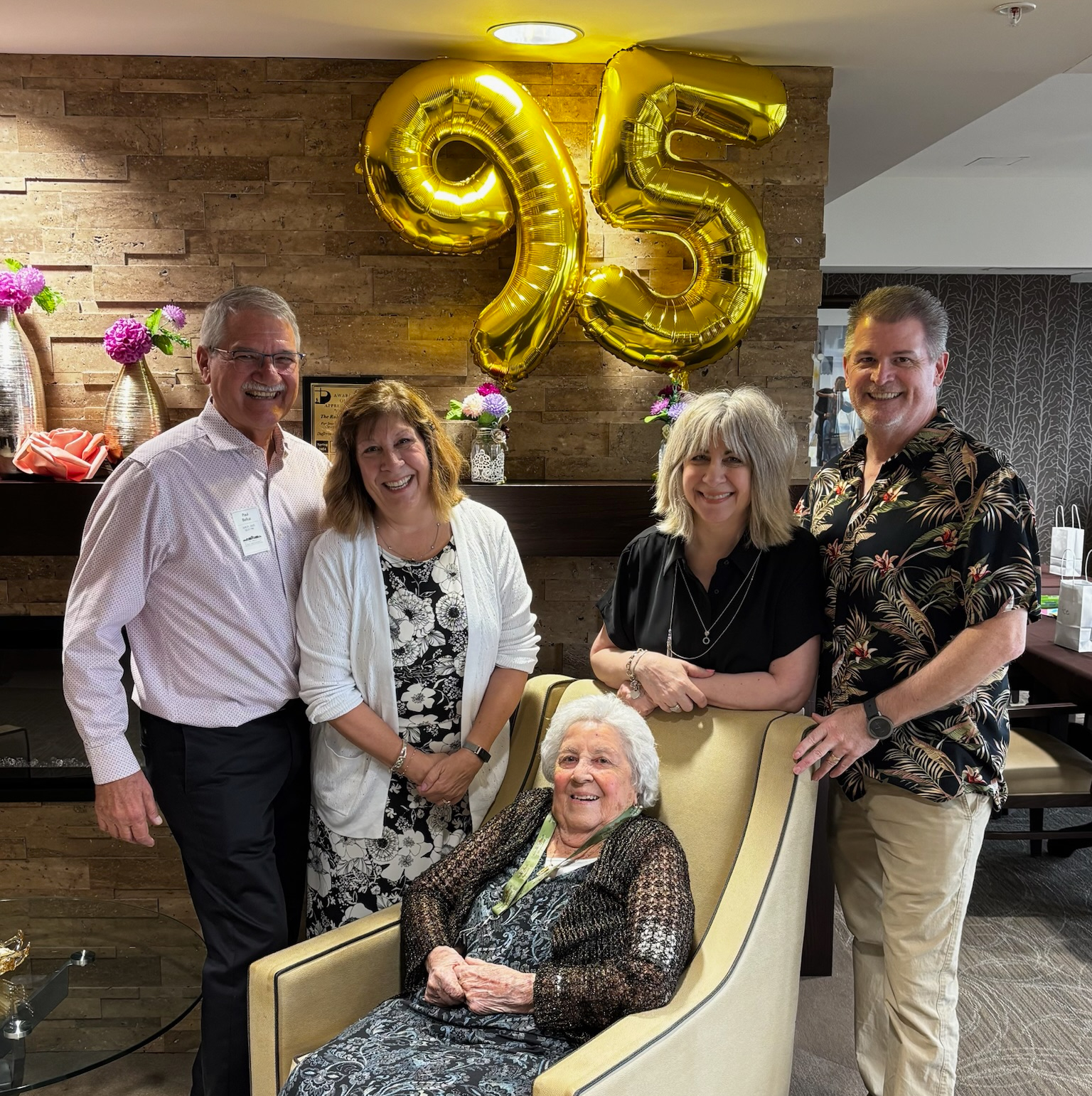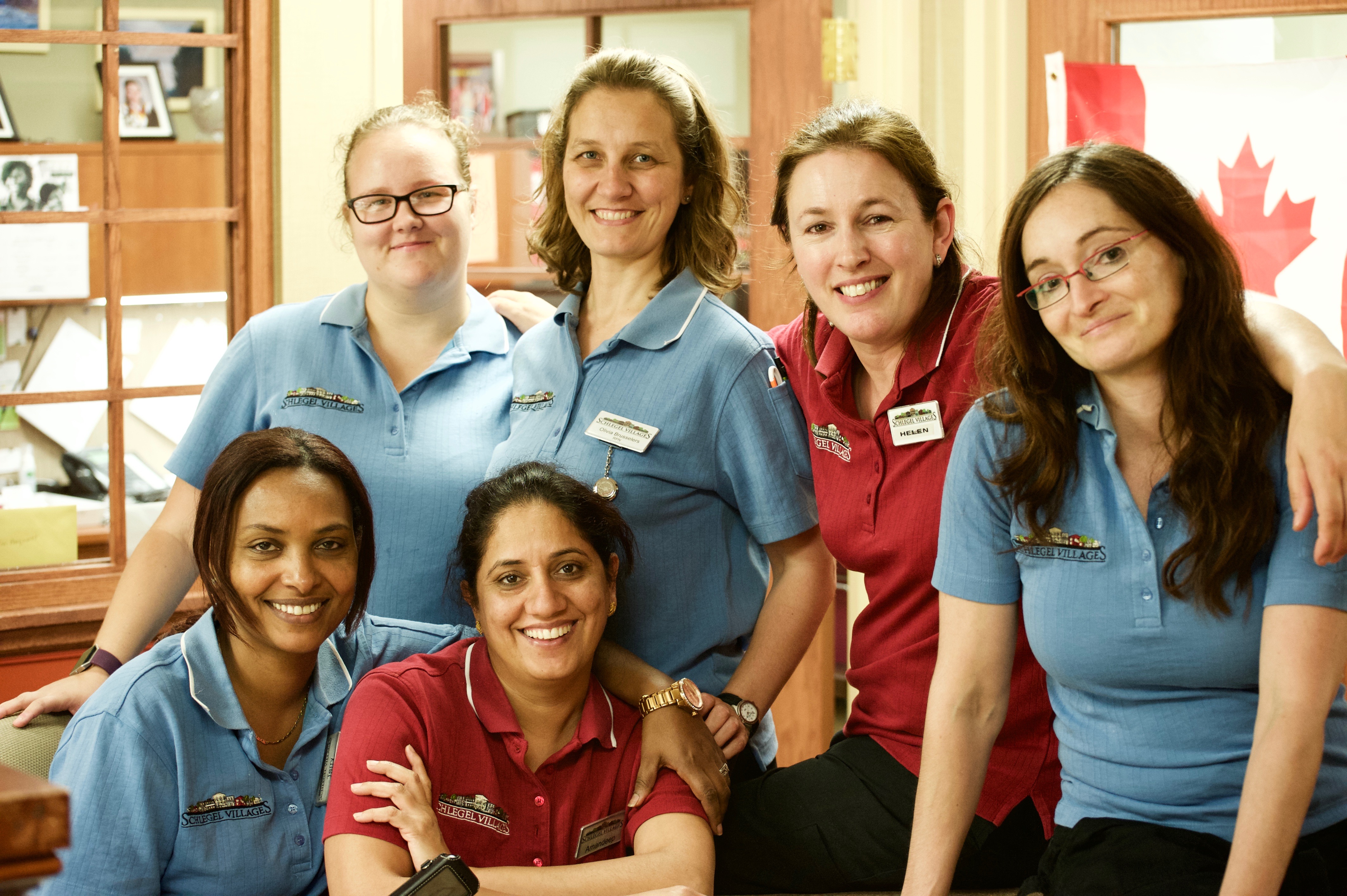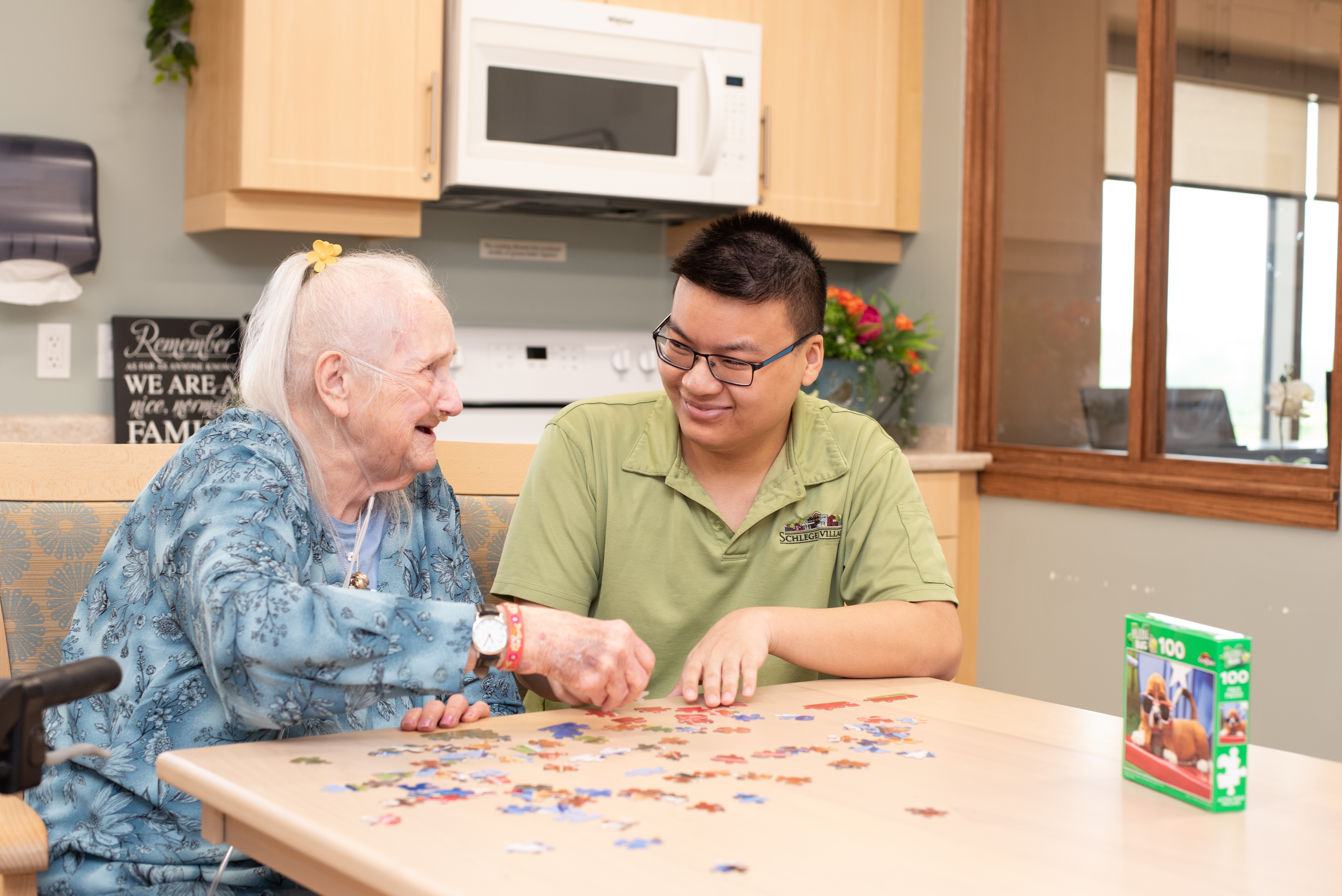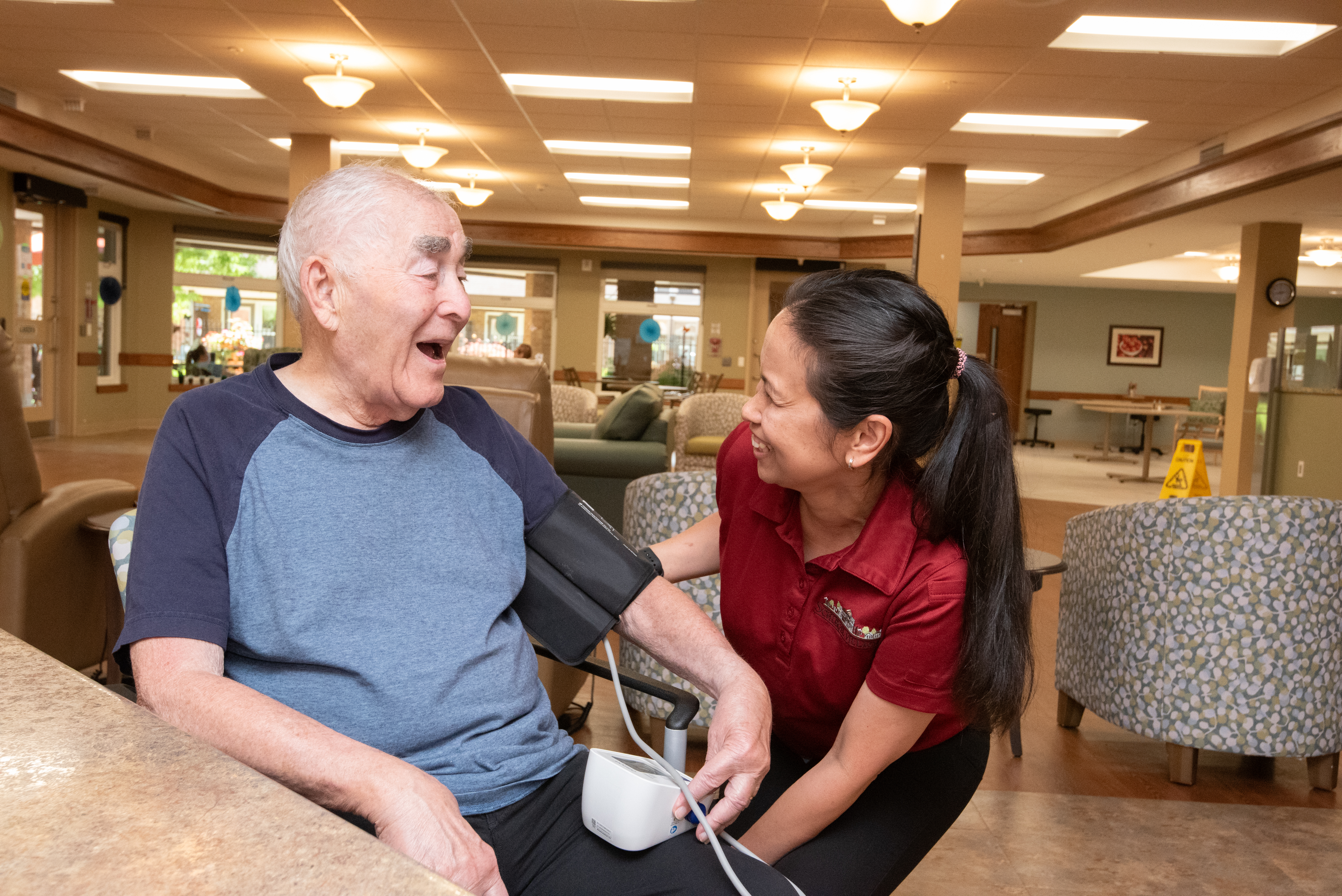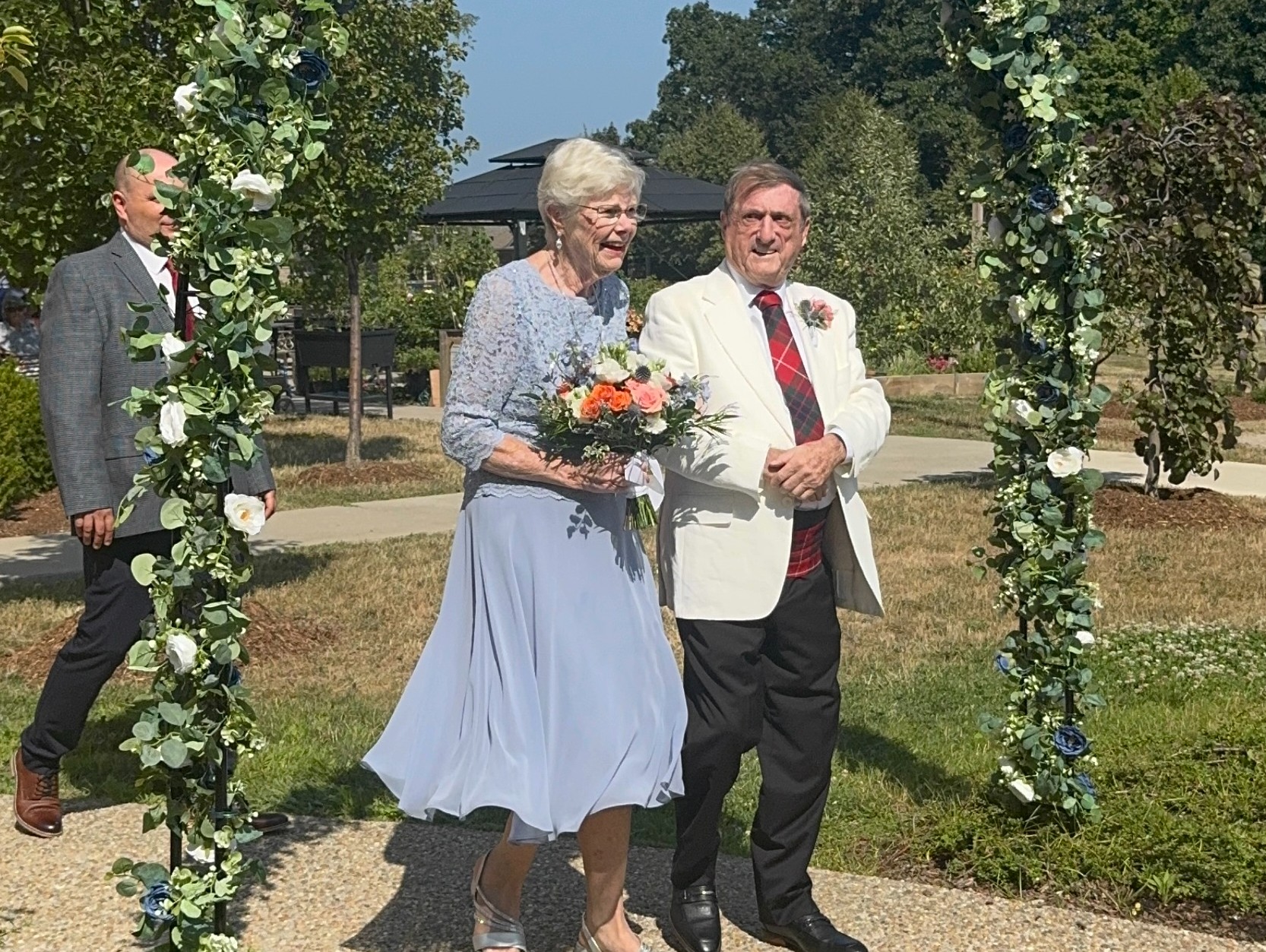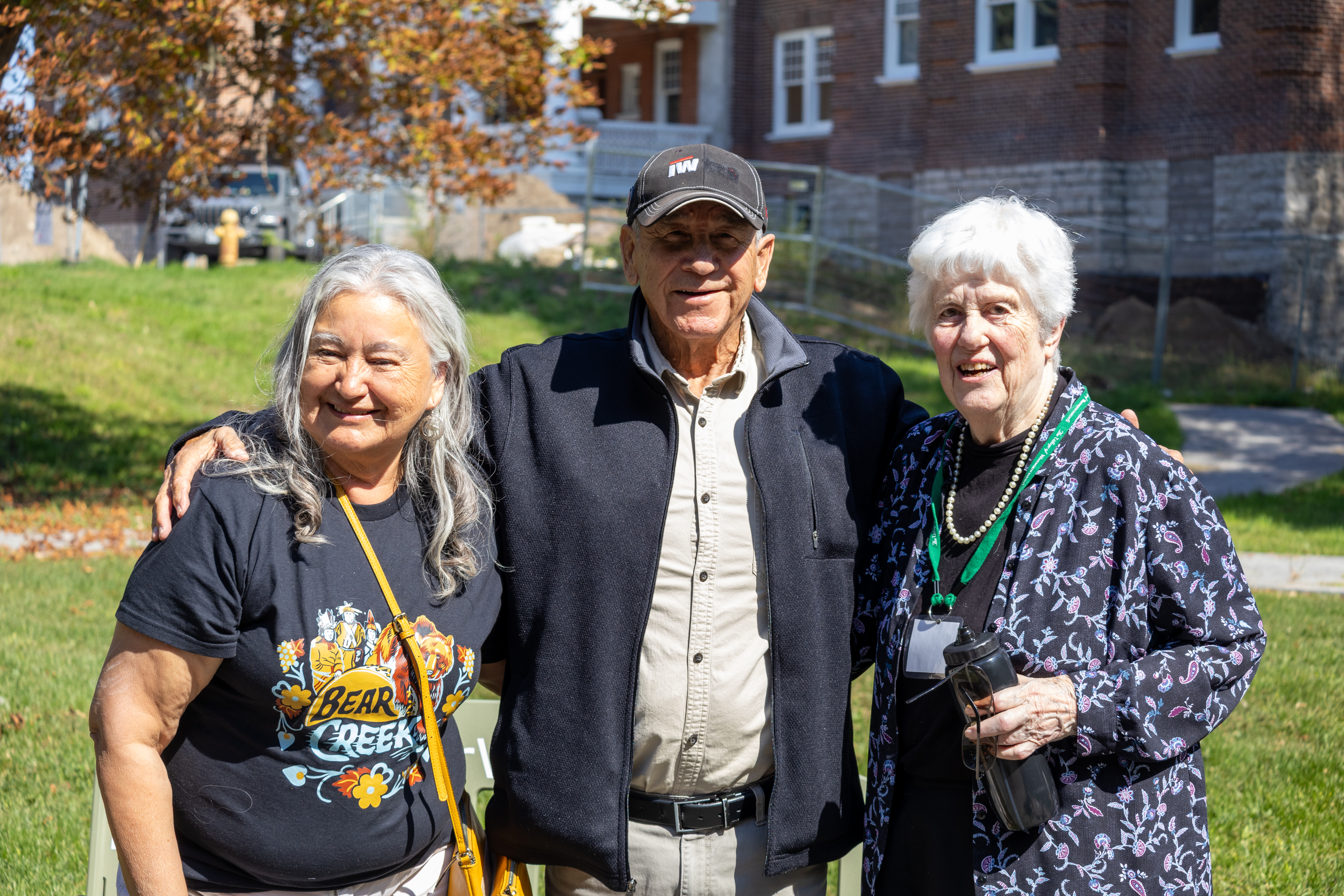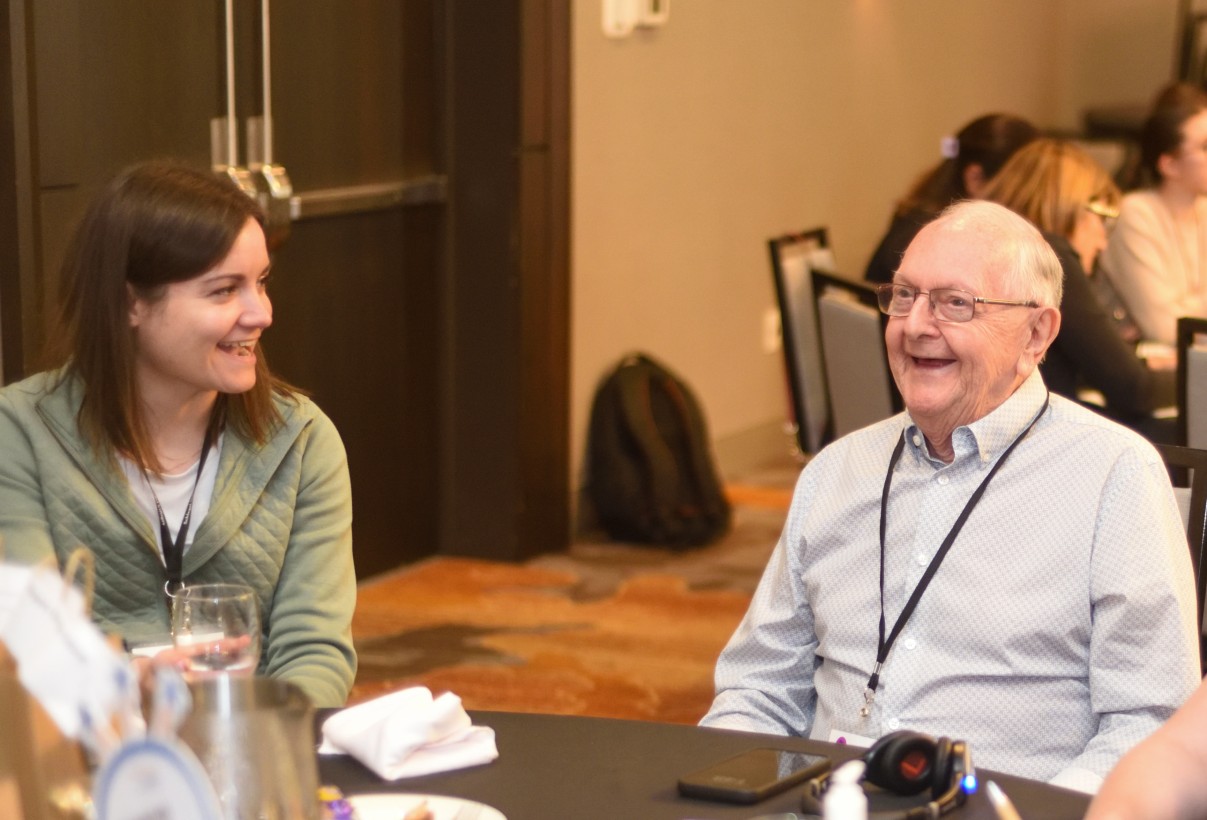Schlegel Villages partners with CAMH to reduce stigma surrounding mental illness
“Sometimes, people just need a good cry.”
This was the simple statement a cashier made when she noticed the forgotten Centre for Addiction and Mental Health (CAMH) nametag Lynda Gerard wore as she waited to pay for her groceries one day after work.
Lynda Gerard and Kim Baker from the Centre
for Addictions and Mental Health were happy to
partner with Schlegel Villages for "One Brave Night."
In Lynda’s mind, she’s much more than an administrative secretary with CAMH; she’s an advocate with a responsibility to dispel myths surrounding mental illness and a mother who has seen its effects first hand. She chose not to let the comment pass but instead offered clarification for the well-meaning cashier. She got personal, explaining how her teenaged daughter fell into a deep depression while wrestling with anxiety, and there were periods where it seemed she’d cry all the time.
It didn’t help, of course, because Lynda’s daughter needed much more than ‘a good cry’, just as the nearly 20 per cent of Canadian’s living in the shadow of mental illness need professional support and assistance. Lynda relayed this story to a large group of people gathered for the CAMH One Brave Night for Mental Health event on the chilly evening of April 7 in Burlington. Lynda stood alongside CAMH implementation supervisor Kim Baker and Schlegel Villages nurse consultant Melanie Pereira to welcome the group who’d gathered in support of mental health awareness on this “One Brave Night”. Melanie and her good friend, Toronto firefighter Susie Opie, decided to help organize the event in partnership with CAMH because mental illness in its many forms touches so many people, and yet stigma remains intrusively prevalent.
“Historically, there have been many negative societal views that follow a diagnosis of mental illness,” Melanie says. “Unfortunately, that historical view has not yet been de-stigmatized.”
In her role with Schlegel Villages, Melanie is keenly aware of the impact mental illness has on residents, team members and their loved ones. The organization is making a concerted effort to not only discuss mental health but also to implement strategies to support those affected when mental health is compromised. As the liaison between Schlegel Villages and community partners who specialize in mental health, such as CAMH or Guelph’s Homewood Health Centre, Melanie says One Brave Night was the perfect opportunity to draw the Burlington Community together.
“We value breaking down these debilitating stigmas and believe any individual living in the community, in long-term care or in retirement living can live a long and purposeful life, even with a diagnosis of mental illness,” Melanie says. “Being part of One Brave Night supported us all to step up and inspire hope in increasing awareness for Mental Health. It also gives our communities an opportunity to see that Schlegel Villages is invested in making a positive difference as we not only partner with this initiative, but with many other organizations across Canada.”

Candace and a neighbour from the Village at St. Clair
also took part in the One Brave Night event to open
the discussion about Mental Health
While Melanie and the group walked the streets as the sun set on Burlington, neighbours (residents), volunteers and team members from the Village at St. Clair in Windsor held their own One Brave Night event. The group walked to St. Clair College and back to the village to show their solidarity, and they enjoyed some live entertainment upon their return.
“The consensus was that we don't talk about mental health awareness enough so people feel embarrassed if they have mental health concerns in their own family or with themselves,” says neighbourhood coordinator Candace Manwaring. “Our neighbours especially felt that in their generation it was something that was not to be talked about.”
But this is changing thanks in part to events like One Brave Night and budding partnerships between like-minded organizations.
These partnerships, says Kim from CAMH, are “part of the work of breaking down stigma. If you keep conversations and work and learning around mental health and addictions centralized in a specialty hospital like CAMH, it’s not serving our communities well. Partnerships between organizational entities, communities and individual people are really what will drive the social change.”
- Previous
- View All News
- Next
